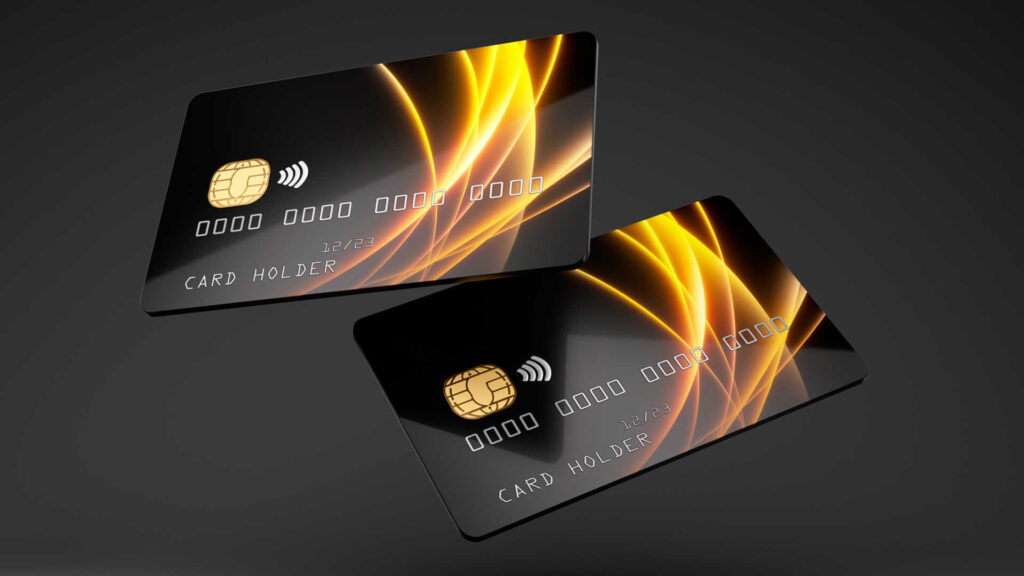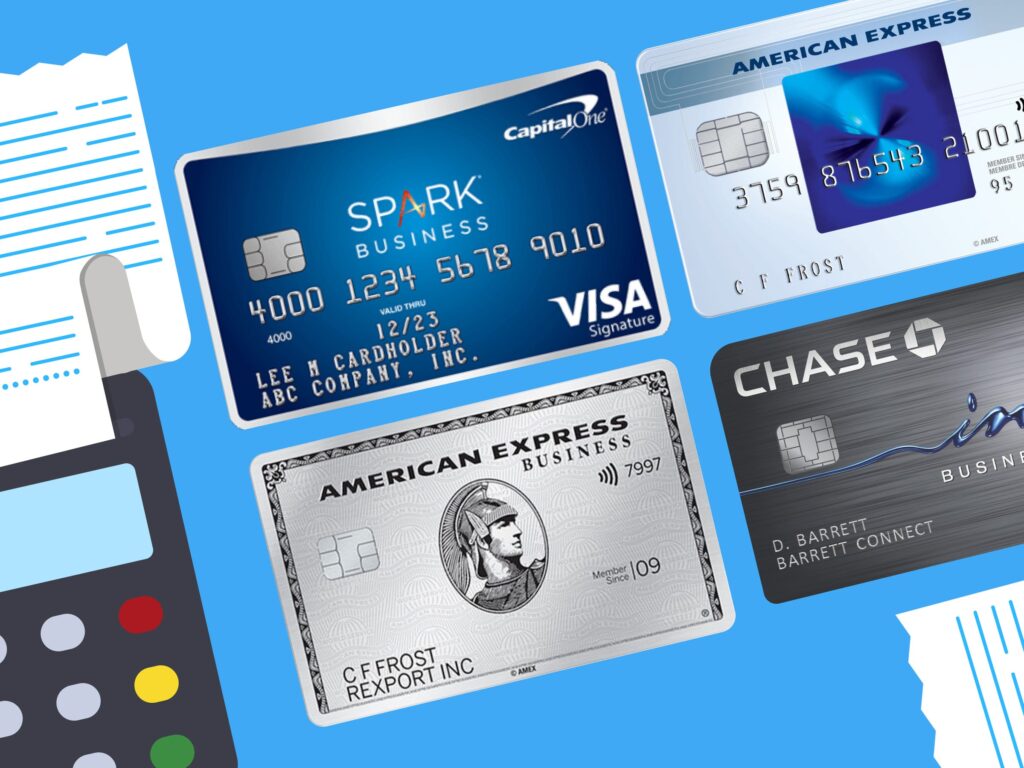Beginning a business can be an exhilarating venture. You have a unique concept that you’re eager to introduce to the world. However, alongside this excitement, there is often a requirement for financial support.
Business expenses can accumulate rapidly, and you may be considering options to cover your initial costs or maintain consistent expansion. One widely utilized approach for accessing financing promptly is by obtaining a business credit card.
Utilizing a business credit card can be a valuable tool for jumpstarting business expansion as it grants access to credit. This credit can be used to invest in essential resources such as systems, equipment, and personnel, which are crucial for achieving your business objectives.
In this article, we will discuss the advantages of having a business credit card, the process of applying for one, and the potential impact on your personal credit.
You Might Also Like:
What Is a Business Credit Card?

A business credit card functions similarly to a personal credit card, providing businesses with a predetermined credit limit and terms for the annual percentage rate (APR). Business credit cards often come with various advantages and resources tailored to meet the specific needs of businesses. These perks may include features such as expense tracking, rewards for regular business purchases, the option to issue employee cards, and higher credit limits.
How does a business credit card work?

Business credit cards function by extending a line of credit to businesses, allowing them to make purchases up to a predetermined limit.
The understanding is that the borrowed amount will be repaid. Similar to regular credit cards, interest may be levied on any remaining balance at the conclusion of each billing cycle. However, if the full balance is settled within each billing cycle, no interest will be accrued.
Business credit cards are a convenient and versatile choice for financing compared to alternatives like business loans. They provide easy access to funds and often come with attractive rewards or cash back programs for your business expenses.
What are the benefits of a business credit card?

Business owners may find several key benefits to using a business credit card.
Higher credit limits
Business credit cards typically come with higher credit limits compared to personal credit cards. This feature can be extremely advantageous when you require to make a business purchase that goes beyond your personal card’s charging capacity.
Additionally, certain business cards offer an introductory promotion with a low annual percentage rate (APR) for a specific duration after you open your account. This can be highly beneficial for large purchases that you can completely pay off within the introductory period.
Rewards for business-related spending
If you have a business credit card, there is a possibility that you can receive rewards for the money you spend. These rewards can be in the form of cash back, gift cards, flights, hotel stays, and other options, depending on the specific card you have.
Business perks
There are certain advantages that come with using a business credit card. These perks can include customized expense reports, protection for purchases, extended warranties, emergency assistance while traveling, and more. Additionally, some business credit cards may provide the opportunity to earn rewards at a faster rate when making common business-related purchases.
Employee cards
Take charge and experience enhanced versatility with business credit cards designed for your staff. Apart from eliminating the hassle of reimbursements, certain cards offer the choice to track employee expenditures and the flexibility to set individual spending limits as and when required.
Additionally, you may have the opportunity to earn rewards based on their purchases, which are automatically accrued.
Separate business expenses from personal
Utilizing a business credit card for all your business expenses can simplify the process during tax season and for maintaining accurate records. With certain cards, you may have the option to connect your quarterly expense reports to specific accounting software, enabling you to effectively monitor your expenditure and stay prepared for tax season.
Build a business credit score
In order to establish a business credit score, it is important to use your credit in a responsible manner. One way to do this is by utilizing a business credit card and making sure to pay at least the minimum amount due each billing cycle.
By doing so, you can begin to build a business credit score, which is similar to your personal credit score and is used by lenders to assess your creditworthiness. Creditworthiness refers to your projected capability to repay loans.
Having a high credit score can greatly benefit you when applying for a business loan or other forms of financing. A good credit score can increase your chances of obtaining better interest rates and higher credit limits.
Additionally, your credit score can also serve as an indicator to potential business partners such as vendors and suppliers, showcasing how well your business handles its credit.
Cons of Business Credit Cards

But business credit cards also have some serious downsides that are worth taking into consideration:
Personal Guarantees
Frequently, businesses may not meet the necessary criteria for credit scoring or other assessments of their credit reliability. In such cases, the lender may request a personal guarantee from the business owner or another person.
This personal guarantee is a contractual agreement that holds the individual who is applying for the business credit card responsible for making regular payments and paying associated fees.
A personal guarantee provision is often included in the agreements of business credit cards, regardless of the creditworthiness of the business. Therefore, it is crucial for borrowers to carefully read and comprehend all the terms specified in the agreement.
In the event that the lender enforces the personal guarantee provisions for repayment, any late payments or missed payments on the credit card may be recorded on the individual’s credit report, negatively impacting their credit score.
Fewer Consumer Protections
Although there have been increased protections for consumer credit cards through the CARD Act, business credit cards have been mostly exempt from these regulations.
This means that certain consumer protections, such as preventing interest rate hikes on existing balances, may not be applicable to business credit cards.
It is important for applicants to not assume that card issuers have extended certain protections to their business credit cards unless it is explicitly stated in the card agreement.
However, some issuers have chosen to voluntarily provide these protections to their business credit card holders.
How a business card impacts your credit

In order to be eligible for a business credit card, the company that issues the card will examine your credit history and personal credit score. This assessment is done to evaluate your creditworthiness and the probability of you repaying the charges on time.
When applying for a business credit card, issuers typically require assurance that someone will take responsibility in case your business encounters difficulties in repaying its debts or faces the risk of shutting down.
Therefore, it is probable that you will be asked to provide a personal guarantee, which indicates to the issuer that you will be personally liable for any outstanding debts that your business is unable to pay.
The majority of issuers of business credit cards provide information about your debt to business credit reporting services. Additionally, issuers such as Capital One and Discover also report your activity to the main consumer credit bureaus.
To determine who your debts and payments are reported to, as well as the frequency of reporting, refer to your credit card agreement. When you use your business credit card in a responsible manner, it can lead to an enhancement of your business credit score.
This, in turn, allows you to access larger credit lines and other types of business loans, enabling your business to expand and grow. Interestingly, your personal credit score may not have a significant impact on this process.
Applying for a business credit card
When submitting an application for a business credit card, the provider will require certain details about both you and your business. Apart from your personal information like name, address, and Social Security number, it is essential to have your company’s tax ID number, business name, and structure readily available.
Additionally, you will need to provide financial information about your firm, including sales and profit figures, as well as details regarding the establishment of your company such as the date and location.
Conclusion
Using a business credit card can be a valuable tool for funding your company’s expansion by providing access to credit and the opportunity to earn rewards. Moreover, it can assist in maintaining financial organization by keeping your business expenses separate from personal ones.
When used responsibly, a business credit card has the potential to establish a solid business credit score that holds significant importance for future financing requirements or partnerships with major vendors.






I agree with the article that utilizing a business credit card can be a valuable tool for financing business expenses. It’s important to carefully consider the benefits and drawbacks before applying for one.
I found this article very informative. It’s important to understand the personal guarantee provision and potential impact on credit scores when applying for a business credit card. It’s also interesting to learn about the differences in consumer protections for business credit cards compared to consumer credit cards.
I agree with the article that utilizing a business credit card can be a valuable tool for financing a business and building a business credit score. It’s important to weigh the benefits and downsides before deciding to get a business credit card.